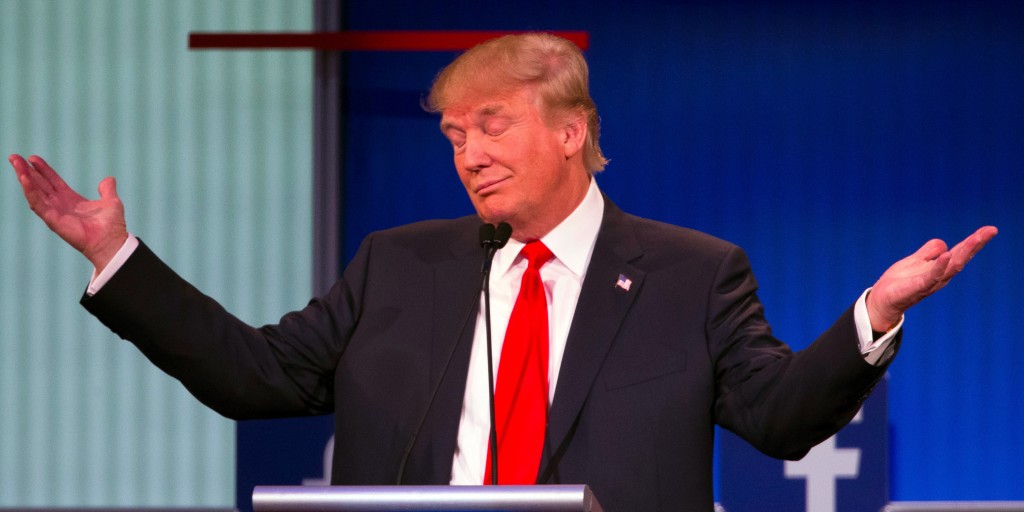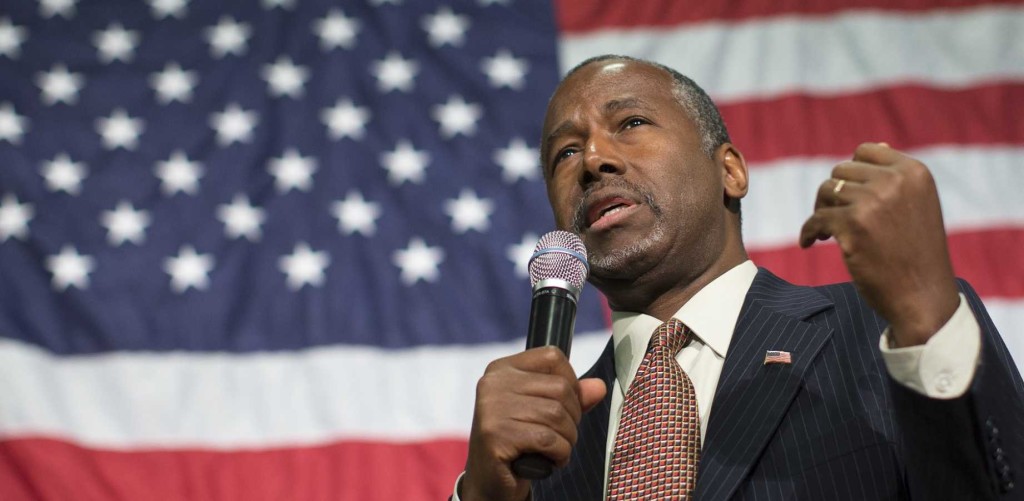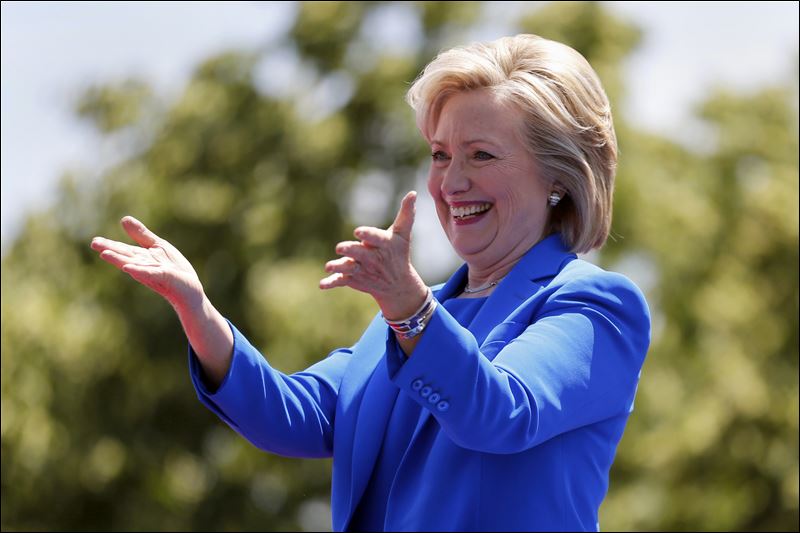Senators press Trump officials on safeguarding 2018 ballots

With the 2018 elections already underway, senators chided the current and former secretaries of Homeland Security on Wednesday for not more strongly warning the American public about past Russian intrusions in state election systems and for a lack of urgency to protect balloting this year. Kirstjen Nielsen, President Donald Trump’s secretary of Homeland Security, testified alongside Jeh Johnson, secretary under former President Barack Obama, as the Senate intelligence committee launched an effort to protect the country’s election security after Russian agents targeted election systems in 21 states ahead of the 2016 general election. There’s no evidence that any hack in the November 2016 election affected election results, but the attempts rattled state election officials and prompted the federal government and states to examine the way votes are counted. Senators on the panel have criticized both administrations for not moving quickly enough to stem the Russian threat, and continued to do so at the hearing. Maine Sen. Susan Collins, a Republican, critiqued Nielsen’s opening statement, which described a series of efforts the department had already announced. “I hear no sense of urgency to really get on top of this issue,” Collins said, noting that 2018 elections are already underway. Collins noted that many state election officials have remained without security clearances, making it harder for the department to share information with them. To speed up communications and intelligence sharing, the department has been working to grant security clearances to up to three election officials in each state. Nielsen said Wednesday that just 20 of those officials have been granted full clearances. “We are doing our best to speed up the process,” Nielsen said, adding that the department has a policy in place to provide information on immediate threats to state and local election officials even if clearances have yet to be granted. Communication and intelligence sharing by the federal government has been a key concern among state and local election officials. Those officials complained that it took the federal government nearly a year to inform them whether their states had been targeted by Russian hackers. Collins, who has introduced legislation with other members of the committee to improve election cybersecurity, also pressed Johnson, asking if he should have issued stronger warnings in 2016 as it became clear that Russians were trying to intrude into the systems. Johnson defended the way he alerted state and local election officials, noting that in the late summer and fall of 2016 he was repeatedly issuing public warnings for those officials to get cybersecurity assistance from the department. “We were beating the drum pretty hard,” Johnson said. California Sen. Dianne Feinstein, a Democrat, also lambasted the Obama administration’s response, saying it was not sufficient to warn the public “in any way, shape or form.” Before leaving office, the Obama administration designated the nation’s election systems as “critical infrastructure,” on par with the electrical grid and water supply. That decision prompted alarm among state election officials, who expressed concern the federal government was trying to take over elections that have long been the jurisdiction of state and local governments. Johnson said he had considered the move earlier, but had backed off because of resistance to states. Johnson also testified that during the 2016 election he contacted The Associated Press because he was worried about the possibility the news cooperative’s election results could be hacked. He said he called AP’s CEO Gary Pruitt about his concerns and came away satisfied that the company was taking appropriate precautions as it counted votes and analyzed results. The hearing follows a Tuesday news conference in which committee members from both parties said government efforts to protect state and local elections from Russian cyberattacks haven’t gone far enough. Top U.S. intelligence officials have said they’ve seen indications Russian agents are preparing a new round of election interference this year. Senators warned that it could be worse the next time around. “What it looks like is a test,” said Maine Sen. Angus King of the 2016 hacking attempts. The committee is recommending that states make sure voting machines have paper audit trails and aren’t capable of being connected to the internet. Senators also are pushing for better communication among the various U.S. intelligence agencies and federal, state and local governments. Senators are also urging state and local election officials to take advantage Homeland Security Department resources, such as comprehensive risk assessments and remote cyberscanning of their networks to spot vulnerabilities. As of last month, just 14 states had requested risk assessments and 30 had asked for remote cyberscans of their networks, according to Homeland Security officials. But even that was straining resources, since many of those risk assessments have not been completed. The committee’s recommendations preview an election security report expected to be released in full in the coming weeks. It is the first of four reports planned as part of the panel’s wide-ranging investigation into Russian meddling in the 2016 election. The recommendations come as Congress is eyeing $380 million in state grants for election security in a wide-ranging spending bill expected to be unveiled as soon as Wednesday. The bill also contains $307 million for the FBI to go after Russian cyberattacks. The top Democrat on the intelligence panel, Virginia Sen. Mark Warner, has said he thinks the nation’s election security needs to be more robust, especially since Trump has not addressed the matter as an urgent problem. “It’s pretty amazing to me we’ve had the director of the FBI, the director of national intelligence and the head of the NSA say in public testimony within the last month that they’ve received no direction from the White House to make election security a priority,” Warner said. Nielsen defended Trump at the hearing, saying, “the line he is drawing is that no votes were changed. That doesn’t mean there’s not a threat.” She added: “We think the threat remains high.” Republished with the permission of the Associated Press.
Donald Trump says he would consider closing certain mosques

Republican presidential candidate Donald Trump says he would consider closing U.S. mosques with radical leadership because of the Paris attacks if he were elected president. “I would hate to do it, but it’s something that you’re going to have to strongly consider,” Trump told MSNBC in a phone interview Monday. Trump and his rivals have been working to articulate how they would respond to last week’s attacks, which killed 129 people and left hundreds wounded. Trump, who has been pushing for a more aggressive response, also said Americans must reassess some of their civil liberties in response to growing threats from the Islamic State group. “We have to be much tougher,” he said in another interview on CNBC. “We are going to have to give up certain privileges that we’ve always had.” “Surveillance took a big turn over the last 48 hours,” he added. “Forty-eight hours ago everybody was saying, ‘Well we want our freedoms, we don’t want this to happen.’ And now, all of sudden, people are saying, ‘Hey listen, you can listen to my phone conversations.’” That surveillance, he argued, should include intelligence-gathering in and around mosques. “Well you’re going to have to watch and study the mosques because a lot of talk is going on at the mosques,” said Trump, who complained that New York City, where he lives, has ramped down its efforts to infiltrate places of Muslim worship. Trump appeared to be referring to the New York Police Department‘s Demographics Unit, which The Associated Press reported in 2011 was spying on Muslims and mosques around the city with help from the CIA. The group assembled databases on where Muslims lived, shopped, worked and prayed, infiltrated Muslim student groups, put informants in mosques and monitored sermons. The NYPD, under Mayor Bill de Blasio, announced it had abandoned the program in April of last year following lawsuits and complaints. Trump told a weekend rally that things would have turned out differently in Paris had the victims of the attacks been armed with guns. He repeated that assertion in the CNBC phone interview. “Had there been some guys with a gun, there would have been a shoot-out and probably the primary people that got whacked would have been the killers,” he said. “Had there been other people carrying weapons, you would have had a lot different story, believe me.” Trump criticized President Barack Obama for not moving earlier to destroy the Islamic State sites that France bombed over the weekend. He said the U.S. should be going more aggressively after the group’s oil and financing and pressing other countries to intensify their fighting against the radicals. Republished with permission of The Associated Press.
Ben Carson: Congress should stop funding refugee resettlement

Republican presidential candidate Ben Carson is calling on Congress to withdraw funding to resettle Syrian refugees in the United States, arguing there is no credible way to tell the difference between an Islamic State militant and an innocent citizen fleeing war. In a letter to House Speaker Paul Ryan, Carson urged congressional Republicans to “extinguish” Syrian resettlement programs, saying the United States “cannot, should not and must not accept any Syrian refugees.” Carson joins other GOP presidential candidates expressing caution or outright opposition to resettling Syrian refugees in the U.S. Elsewhere across the political landscape, at least 10 governors, including Michigan and Alabama, have taken action to block resettlements or said they are exploring their legal options. Members of the Republican-controlled Congress, too, said on Monday they will try to use must-pass government spending legislation to block President Barack Obama‘s plans to increase the flow of Syrian refugees into the U.S. Obama earlier this year announced plans to accept as many as 10,000 Syrian refugees this fiscal year, up from 2,000 in fiscal 2015. The State Department manages refugee resettlement with the aid of private organizations like Catholic Charities. Democratic presidential candidates have called for the U.S. to continue to let in Syrian refugees, but only after proper background checks. Carson suggested no such practical solution exists where Syrian migrants are concerned. “This is a relatively unique situation for our country,” he said. Carson, who is near the top of many GOP presidential preference polls, joins Texas Sen. Ted Cruz, former Arkansas Gov. Mike Huckabee and Florida Sen. Marco Rubio as candidates who have called for closing American borders to Syrians. Former Florida Gov. Jeb Bush suggested over the weekend that the United States restrict admission only to Syrian Christians. Louisiana Gov. Bobby Jindal on Monday issued an executive order intended to block Syrian refugees from being resettled in his state. Obama on Monday chided Republicans he says are effectively imposing a “religious test” on people fleeing war. “That’s not American. That’s not who we are,” the president said. Carson retorted, “Of course we don’t apply religious tests, but we should apply an ideological test. I would be very reticent to bring in people ideologically opposed to the ideals of America.” He did not explain the distinction between testing for ideology and religious belief. As for the Syrian refugees already in the United States, Carson said, “I would watch them very carefully.” Carson’s idea of cutting off funding would face roadblocks on Capitol Hill, particularly in the Senate, where Republicans do not have the votes to stave off a Democratic filibuster. But House Budget Chairman Tom Price issued a statement on Monday saying the United States “must suspend our refugee program until certainty is brought to the vetting process.” Republished with permission of The Associated Press.
Hillary Rodham Clinton formally kicks off 2016 bid

Hillary Rodham Clinton formally kicked off her presidential campaign on Saturday with an enthusiastic embrace of her potential to become the first woman to win the White House, asking supporters gathered at an outdoor rally to join her in building an America “where we don’t leave anyone out, or anyone behind.” With the downtown New York skyline and new World Trade Center over her shoulder, Clinton offered herself as a fierce advocate for those still struggling from the Great Recession. She promised to carry on the liberal legacies of President Barack Obama, and former Presidents Franklin D. Roosevelt and Bill Clinton, her husband, saying “real and lasting prosperity must be built by all and shared by all.” While Clinton ended her first campaign for president in 2008 by conceding she and her backers “weren’t able to shatter that highest, hardest glass ceiling,” she vowed Saturday to push ahead toward an “America where a father can tell his daughter: Yes, you can be anything you want to be — even president of the United States.” “I think you know by now that I’ve been called many things by many people,” Clinton said to cheers and laughter from the crowd of roughly 5,500 gathering on Roosevelt Island in the East River. “Quitter is not one of them.” The 67-year-old former secretary of state, first lady and Democratic senator from New York did not make her gender a core element in 2008, but it provided the cap to the first major speech of her 2016 bid. “I will be the youngest woman president in the history of the United States. And the first grandmother as well,” she said. Two months after starting her campaign with a simple video that showed her only briefly, Clinton outlined a broad vision intended to attract the coalition of young and minority voters that propelled Obama to two victories. In her roughly 45 minute speech, Clinton laid out a wish list of Democratic policies: universal pre-K education, increased regulation of the financial industry, paid sick leave and equal pay for women, a path to citizenship for immigrants living in the country illegally, campaign finance overhaul and a ban on discrimination against gay people and their families. In doing so, Clinton tried to cast the 2016 election as a choice about the economic future of the middle class, saying the Republican field is “singing the same old song.” The GOP’s candidates, she said, want to give Wall Street banks free reign, take away health insurance, “turn their backs” on gay people and ignore the science of climate change. “Fundamentally, they reject what it takes to build an inclusive economy,” Clinton said. “It takes an inclusive society. What I once called ‘a village’ that has a place for everyone.” Republicans jumped on Clinton’s decision to cite her ties to Obama and were trying to raise money off the speech almost as soon as it ended. In an email appeal asking for donations, former Texas Gov. Rick Perry wrote, “We want to look toward a brighter future, not backward at the failed policies of the Obama-Clinton years.” As part of an effort to reintroduce herself to the public, Clinton stressed her career of advocacy — a calling she said was inspired by her mother’s difficult upbringing. After the rally, she headed to Iowa for a campaign event Saturday night, followed next week by a tour of early voting states. There, she will focus on her relationship with her mother and her father’s background as a veteran and small businessman. Clinton is the dominant front-runner for the nomination in a race that also includes Sen. Bernie Sanders of Vermont, former Maryland Gov. Martin O’Malley and former Rhode Island Gov. Lincoln Chafee. Clinton’s aides said she plans to give a policy address almost every week during the summer and fall. New York has one of the highest rates of income inequality in the country, so Clinton’s remarks here could foreshadow a campaign that will draw contrasts with rivals over who best can provide de for the country’s economic security. “Prosperity can’t be just for CEOs and hedge fund managers,” Clinton said. “You brought our country back, now it’s time your time to secure the gains and move ahead.” Yet the Clinton family’s financial history makes some in her party skeptical of her populist credentials. Both Clintons have earned millions in speaking fees, including some from Wall Street banks, and daughter Chelsea and her husband have worked at hedge funds. Clinton spoke about foreign policy for the first time in any significant detail since returning to presidential politics. As Obama’s first secretary of state, Clinton said she stood up to Russian leader Vladimir Putin and was in the White House Situation Room the night Osama bin Laden was killed. Here, too, Clinton tried to set herself apart from the more than dozen Republicans who plan to run and have focused, early in the campaign, on the threats the nation faces overseas. “There are a lot of trouble spots in the world, but there’s a lot of good news out there, too,” Clinton said. Clinton remained silent on some issues of critical importance to the Democratic base, most notably a Pacific Rim trade pact backed by Obama but opposed by organized labor, liberals and others who say it will cost the U.S. jobs. The omission didn’t go unnoticed in Iowa and New Hampshire, where Sanders and O’Malley were campaigning. Both are against the trade deal, and Sanders again hammered Clinton for refusing to say where she stood while touting his support from organized labor. “I want to say this: The president is dead wrong on this issue, but he has come out for it,” Sanders said. “Most Democrats in the Congress are against it. But I don’t understand how you don’t have a position on this issue.” Republished with permission of The Associated Press.


